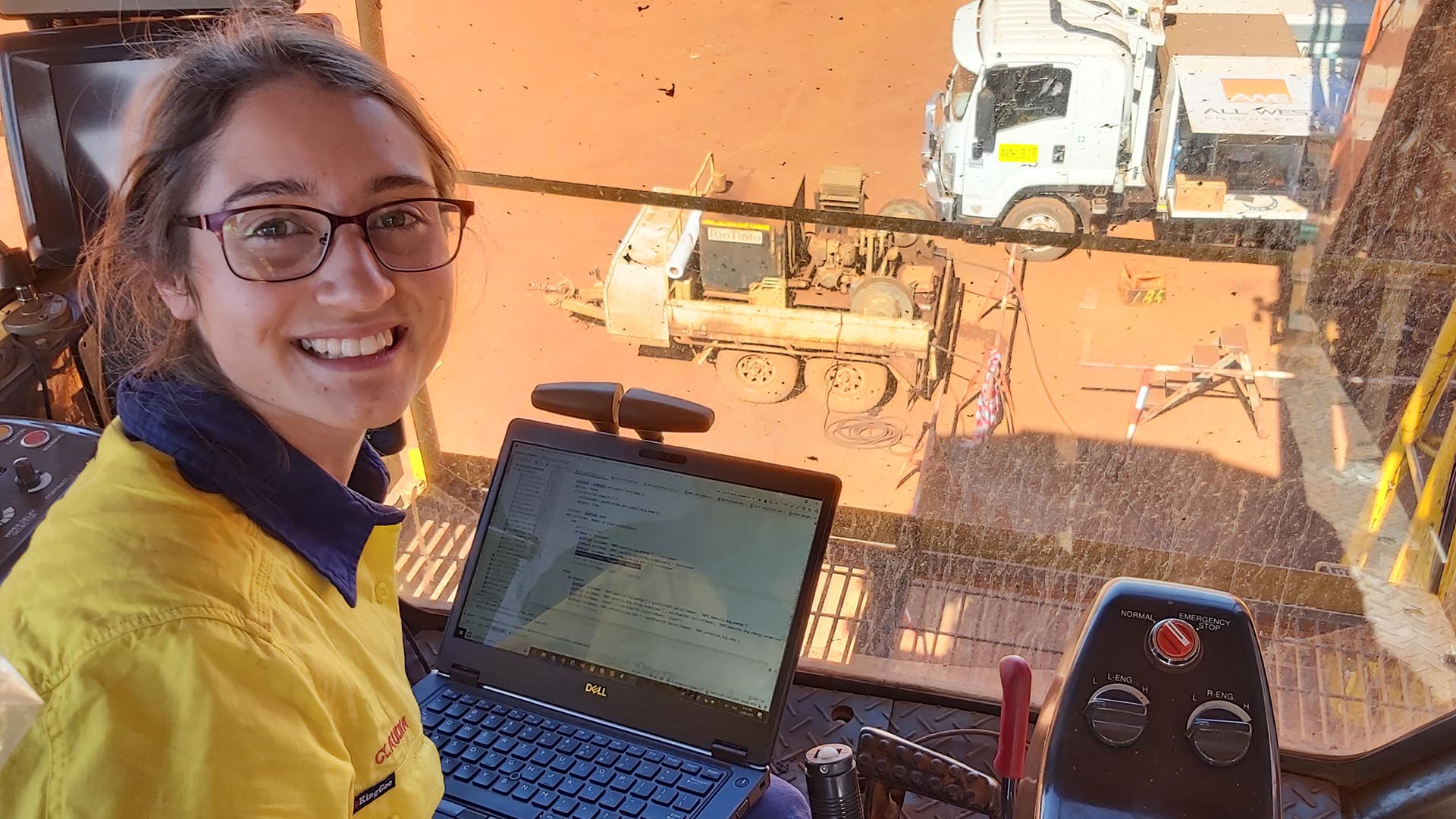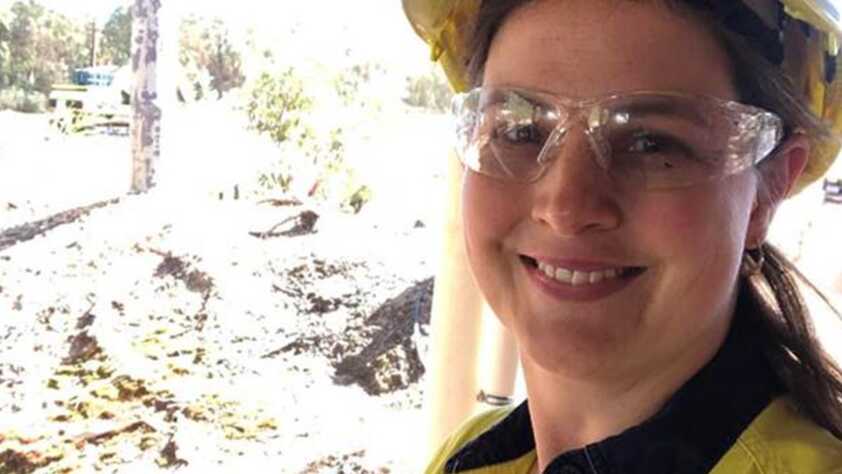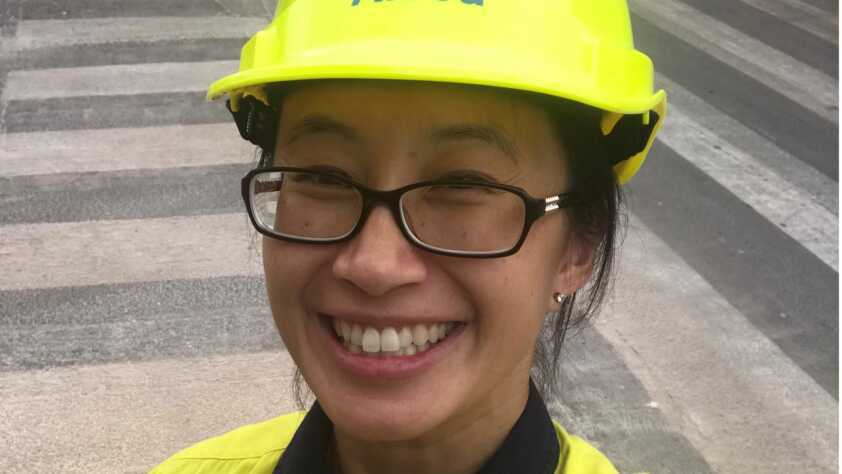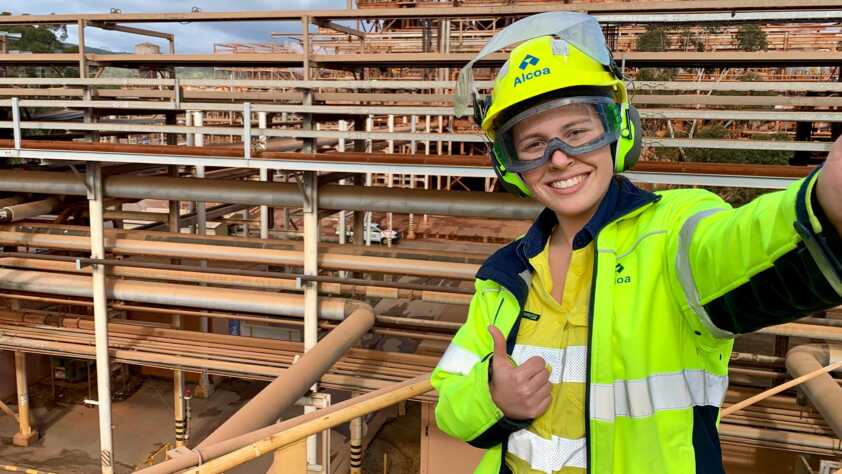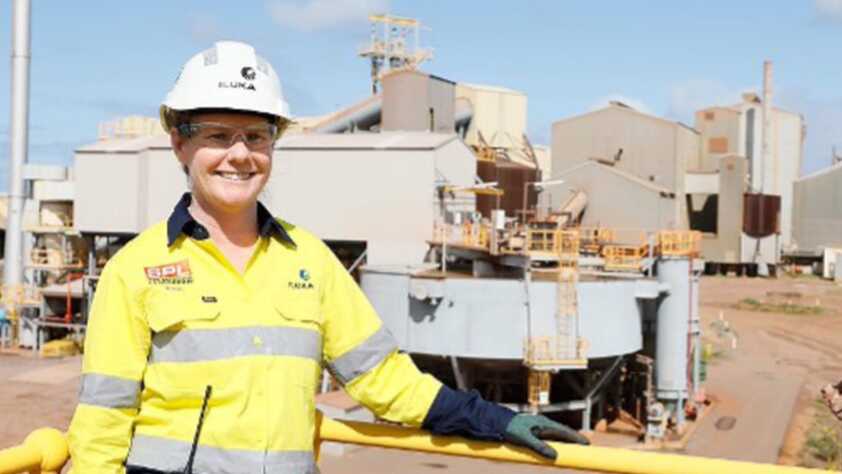Claudia is a Graduate Systems/Software Engineer at Rio Tinto. She’s worked for the organisation for 2 years.
Why did you join the resources industry?
I was very fortunate to be exposed to the industry from a young age – all my life I had grown up in mining towns. I have memories that I look back on very fondly of, at Christmas time big haul trucks dressed in tinsel coming down the main road of Kalgoorlie – the Western Australian town home to one of the largest open-cut mines on Earth. So, my passion for the industry started at a very early age. I also have a love of all things tech though, and am very passionate about robotics and automation – and the resource industry is at the forefront of this technology. This is especially true for Rio Tinto, with the autonomous trucks and drills that we operate, and AutoHaul – the world’s first fully autonomous, heavy-haul long-distance railway system.
What was your perception of the industry before you joined and how has that changed?
There’s a perception of the mining industry as operating with big clunky equipment and old tech. Luckily, coming from a mining background, having grown up around mine sites and having family in mining, I knew that this perception wasn’t the truth. Now, I am working towards changing this perception. As a mechatronics engineer and a love for technology, it’s an absolute dream come true to be part of innovating future technologies with a world leader in mining automation. I’ve had the opportunity to apply my skills to a variety of autonomous fields within the business and tech terms like machine learning and AI are all involved with my day-to-day work.
What have you learnt about the industry?
I have learnt that this is an industry full of opportunity and that anyone can join the industry and grab these amazing opportunities. With the broad range of skills required in mining, it’s an industry that has something for everyone.
Once you enter the industry, you realise how integral mining is, and how many of our buildings and the things we use, contain materials produced by the industry – we really are mining materials essential to human progress. Additionally, whilst mining has long been a cornerstone of the Australian economy, it was the COVID pandemic that made it clear how integral the industry is to supporting Australia and Australians.
Through the inside look into the industry that I’ve had, I’ve realised how much progress is being made in the way of sustainability. Having a minimal impact on the environment is something that is taken into consideration in every project, and we have ambitious goals to in the future have net zero emissions.
How can the industry encourage other women to join?
It is an industry full of opportunity, interesting and challenging projects, diverse roles – it offers an amazing and fulfilling career. The industry needs to make a joint effort to align its image to these benefits and away from old stereotypes, which I think are holding the industry back. It’s about changing that narrative and image to reflect the great team culture that exists, where we are all respected and treated as equals because it is recognised that everyone is capable of doing the job.
Furthermore, the range of skills that can be applied in the mining industry is vast – there’s obviously the directly related mining skills of geologists, mining engineers, metallurgists, etc. but the industry needs people skilled in projects, construction, community relations, environment & sustainabilty, research & development, technology, data science, rail, port and logistics, recruitment and HR, finance & legal, marketing, sales, and more – so there is a place for everyone! I think that fact needs to be leveraged in getting more people to join the industry. In addition to this, it also needs to be communicated that you don’t have to work on a mine site to be in mining – many integral roles are city based, which is something that I imagine plays a large part in people’s consideration to join the industry.
More work does need to be done in encouraging girls into STEM from a young age, to then feed those pipelines of applicants for degrees that take women into a career in the mining industry.
I’d say to anyone thinking about joining the industry, that if you want to apply your skills to a rapidly changing environment, diverse problems, have a career where you can change roles and travel internationally, then I’d absolutely recommend the mining industry.
What’s the next step for you?
I’ve had such an amazing learning journey with Rio’s Graduate Program. I couldn’t have wished for a better place to start my career, and I look forward to continuing to learn and grow with Rio.


